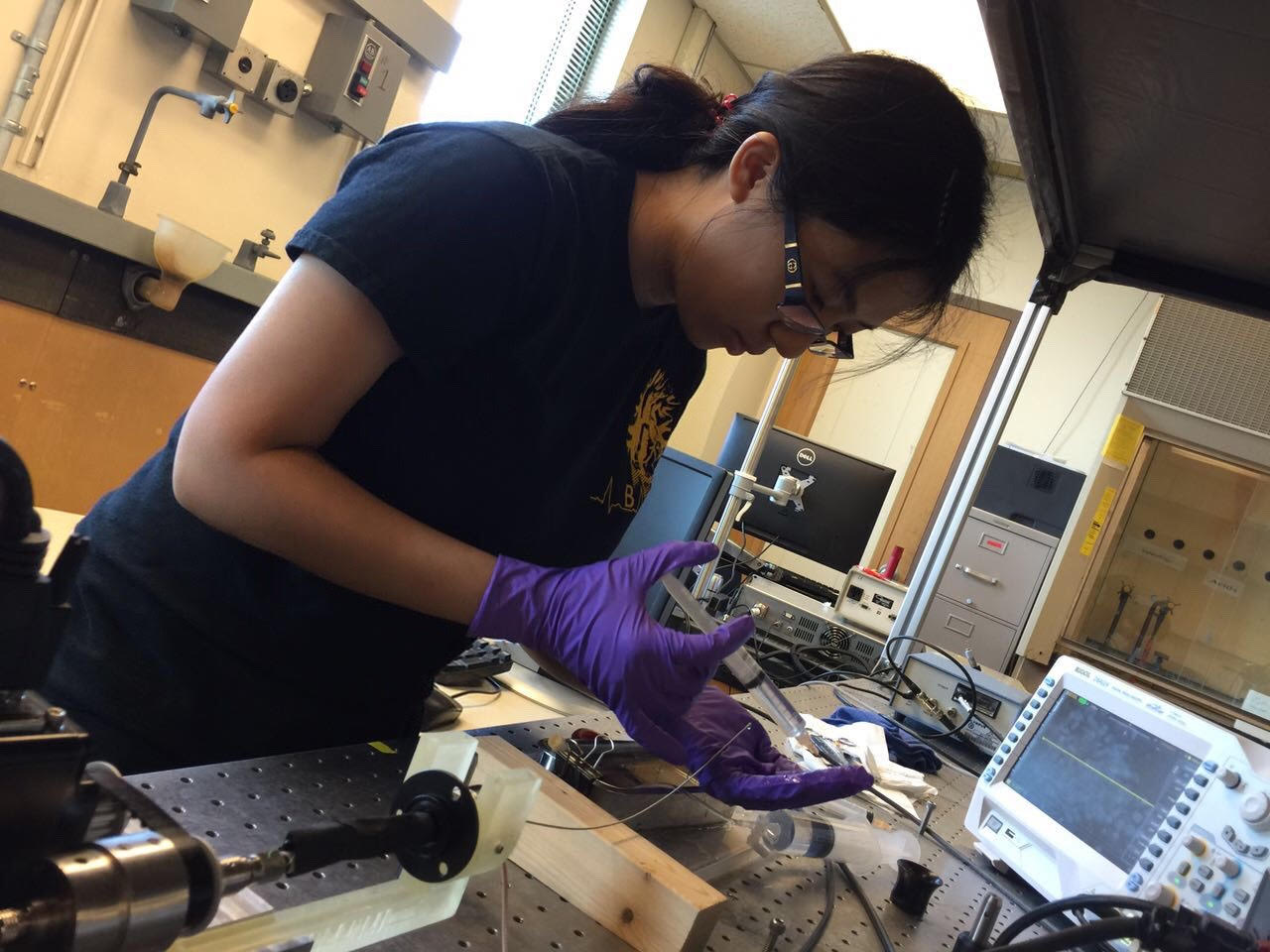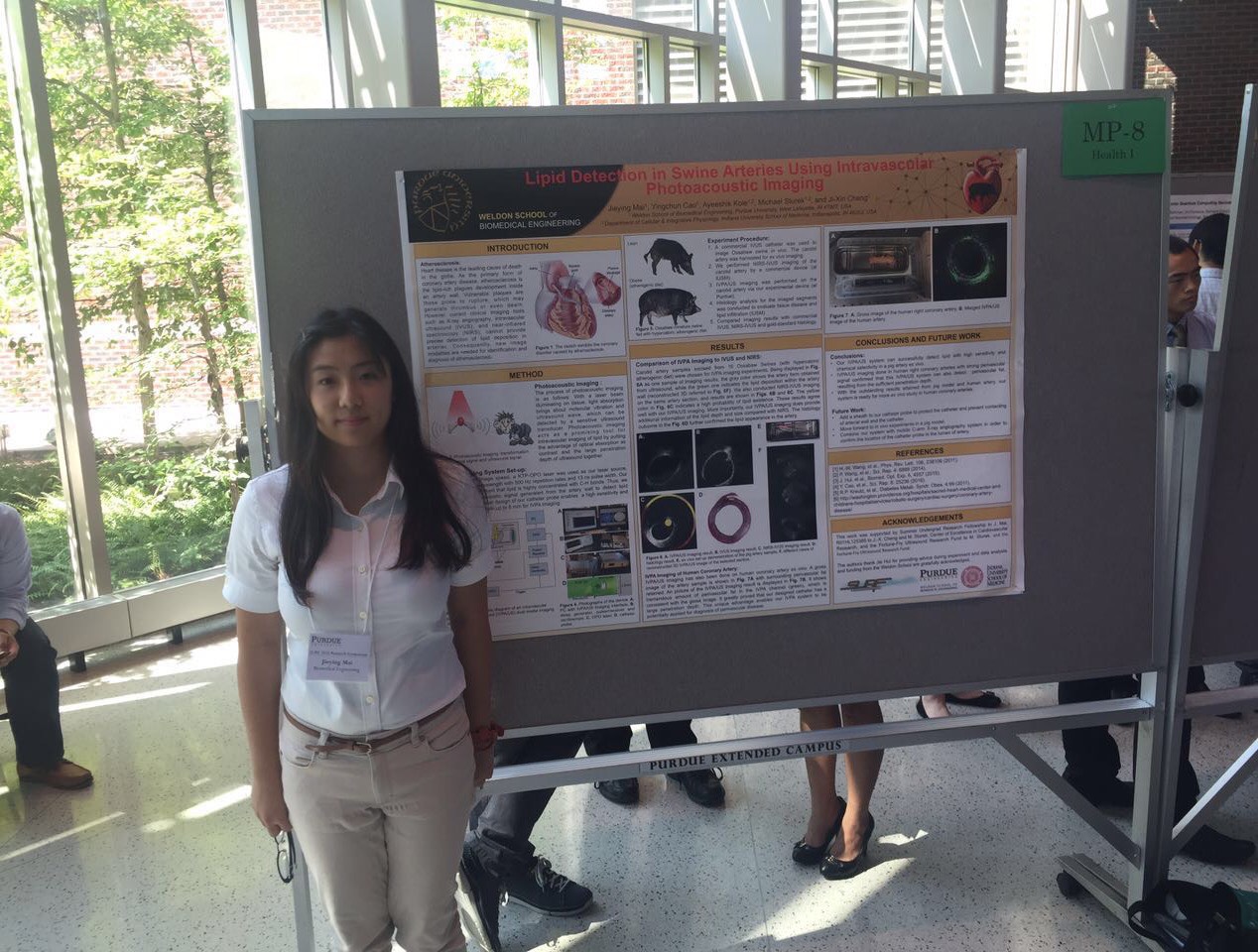Jieying Mai | Imaging Research
 What type of research have you been working on?
What type of research have you been working on?
I started working as an undergrad researcher under the guidance of Professor Ji-Xin Cheng and his postdoc Dr. Yingchun Cao in 2015 when I was a sophomore. My research focus is intravascular photoacoustic (IVPA) imaging. Photoacoustic imaging combines the advantage of optical absorption as contrast and the large penetration depth of ultrasound, so it is a promising tool for intravascular imaging of lipid. The goal of our research is to use IVPA devices to detect lipid deposition in the human artery for improving the efficiency of the diagnosis of arteriosclerosis.
Why did you initially seek out a research position? How and why did you choose your current lab in particular?
A strong interest in biomedical devices and applications gave me impetus to join Dr. Cheng's lab for professional training on IVPA. The friendly and harmonious academic atmosphere impressed me so much and I indeed learned a lot from the grad students who come from many different departments including chemistry, physics, science and engineering departments. As a team, each one has their role and they support each other well.
What have been your favorite parts working in this lab?
My professor is always encouraging me to learn new things and seek novel ways to solve the problems. Moreover, he advises me to participate in many activities that I would not otherwise attend. For instance, I went to Indiana University-Purdue University Indianapolis (IUPUI) to learn about the intravascular ultrasound (IVUS) in vivo experiments in Ossabaw swine arteries during which I assisted the surgeon in taking out two femoral arteries. I also joined the annual workshop held by our lab this July where I heard a wonderful talk about using photoacoustic imaging to study the oxygenation degree of blood presented by Prof. Hao Zhang from Northwestern University. These diverse activities game me the opportunity to communicate with the experts in this field and strengthened my interest in biomedical devices.
 How has this influenced your future academic or career plans?
How has this influenced your future academic or career plans?
Growing more and more confident in my research group makes me well prepared for graduate school. For my graduate study, I hope to become a qualified and outstanding scientist for biomedical devices. In the future, I wish to work at a company as a research scientist in order to invent cost-friendly biomedical devices to improve the lifespan and life quality for all human beings.
What advice would you give to students who are interested in doing research with a professor?
Apply with many different professors in many different fields that interest you. This will give you a higher change of getting a research position. For example, BME students can also apply for the ABE projects that are related to medical and public health. They are not as competitive as some BME projects that many BME students are seeking. Summer is a good time to do research because you can just focus on the research and do not need to worry about your studies. Also there are more opportunities for additional activities related to your research. For example I got to go to the IUPUI medical lab, which I would not get to do during the school year.
